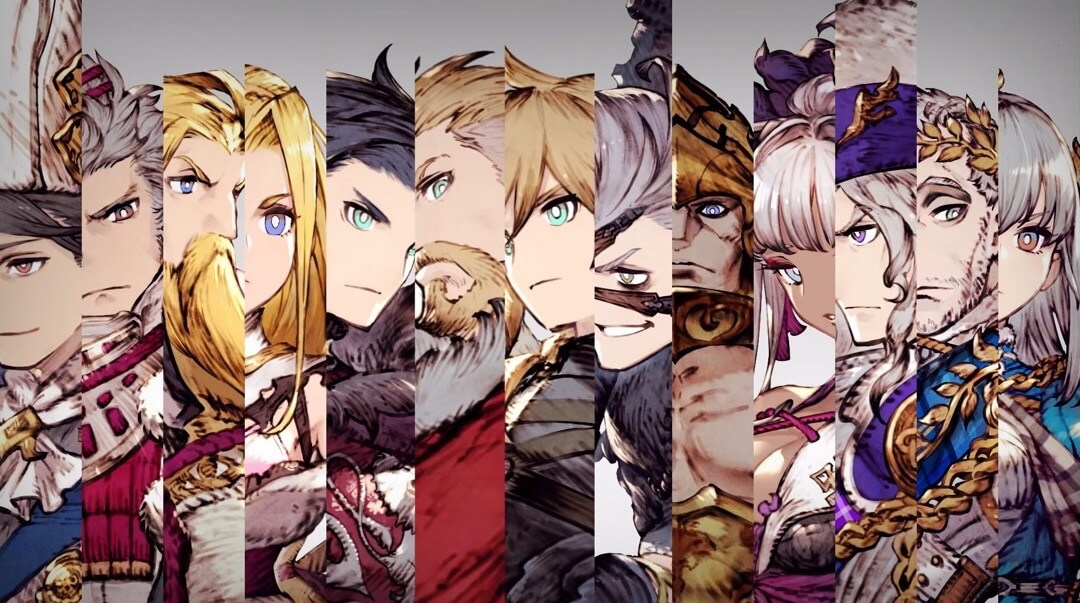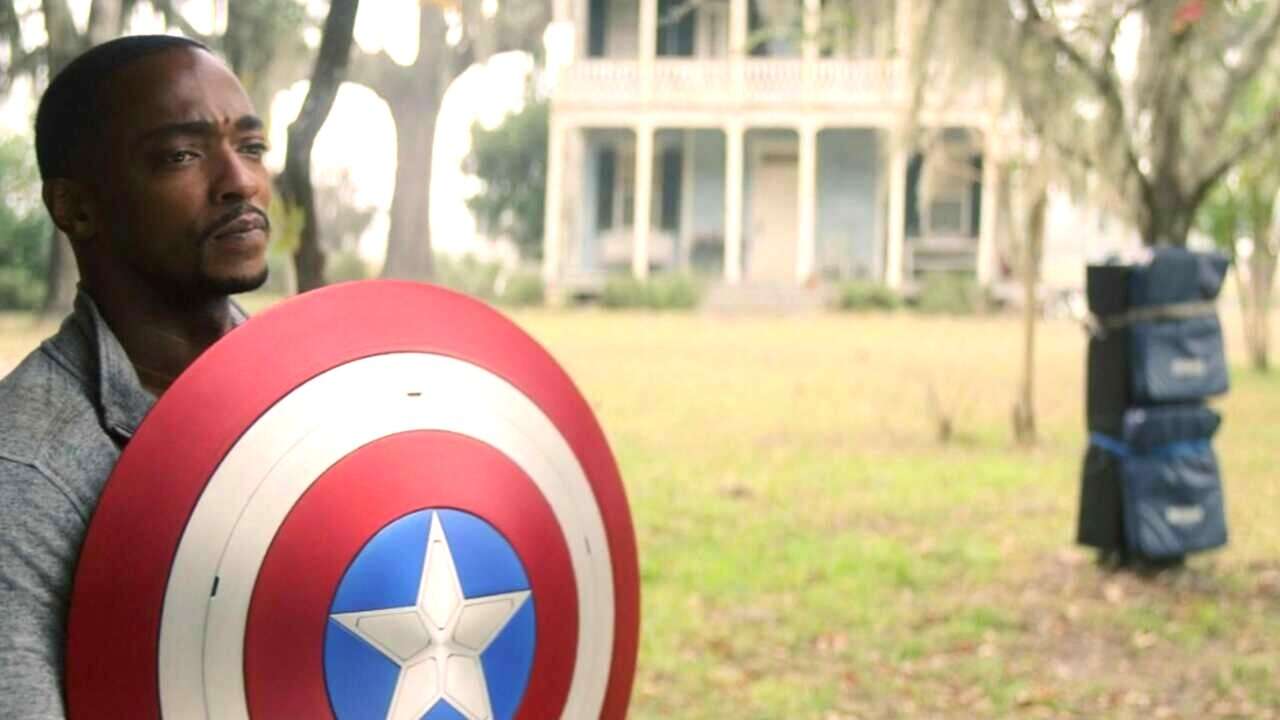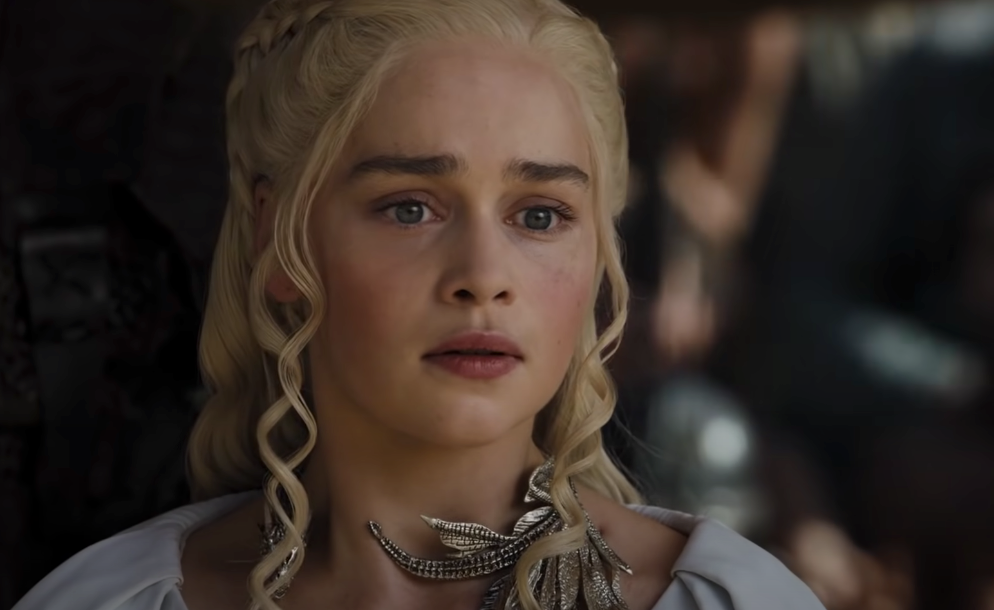The thing that’s always been fun about the Evil Dead franchise is its mixture of gory horror and over-the-top ass-kicking. The demonic Deadites that protagonist Ash Williams faces can be terrifying, fully capable of taking over characters’ bodies and ripping people apart–but Ash is a guy who has a boomstick in one hand and a prosthetic chainsaw in place of the other.
The intrinsic fact of Evil Dead, that both the monsters and the humans who fight them are capable killers, creates an interesting challenge for turning the franchise into an asymetrical multiplayer horror game in Evil Dead: The Game. In a lot of other, similar games, a group of players faces off against a single human opponent who plays a frightfully powerful killer. The survivor team is mostly trying to flee and stay alive, while the killer player is hunting them down. The survivor team’s strengths lie in numbers, strategy, and hiding, but they often don’t have much in the way of ability to wage war against their assailant.
In Evil Dead, though, the humans don’t just flee the Kandarian Demon, Evil Dead’s supernatural antagonist, and its undead army–they fight, slicing off Deadite heads and spraying monster guts all over the place. That fact led Evil Dead: The Game developer Saber Interactive to find a different way to balance its game; it still sees a group of four players facing off a horror controlled by a fifth, but both sides are active in different ways and putting up a serious fight. We played about an hour of Evil Dead: The Game with the developers recently and got a first-hand sense of how the game is balanced to capture the same feel of the movies and TV show–that the humans will kick Deadite ass, and that the Kandarian demon is an ancient force of frightening power.
For the humans, the goal of every battle in Evil Dead: The Game is to complete a series of objectives, while the player controlling the invisible, formless Kandarian demon flies around the level and tries to stop them or kill them along the way. It gives the game a sort of player-versus-environment-versus-player feel–there are various AI-controlled enemies scattered around Evil Dead’s huge maps that the human team has to deal with, while they also have to resist direct and indirect attacks from the demon player.
A typical match goes like this: the human players start by quickly searching nearby structures for loot in a way that’s similar to battle royale and other multiplayer-only games. You want to gather healing items and melee and ranged weapons, and the gear you find also has rarity levels that dictate how good it is, which make it a good idea to keep looking around for upgrades to help keep yourself alive. Once you’re looted up, you have to start hunting objectives–first tracking down pieces of a map, then using that map to locate an item called the Kandarian Dagger. Once you have the Dagger, you can use its power against boss enemies called the Dark Ones, located somewhere on the map. Defeating them gets you the iconic Necronomicon, which you then have to defend for a set period of time in order to win the match, while Deadites swarm in and attempt to destroy it and claim victory for the demon.
For the human team, there’s a lot to accomplish; meanwhile, the demon player’s job is to kill, slow, and distract. However, while the demon has access to an army of Deadites–both the ambient ones who appear on the map and others they can summon on demand–they’re at something of a power disadvantage. Even the toughest Deadites can be pretty easily beaten by humans, particularly if they work together. So rather than just trying to overwhelm the human players, the better strategy is to harass them at key moments, set traps that can waylay them, and possess them directly to turn them against each other.

Gallery





At the start of the match, the demon player doesn’t know where the humans are and has to track them down, following indicators when they make noise by firing weapons or using vehicles. But the demon player does know what locations the humans will eventually reach in order to complete their objectives. So you fly around, gathering up power from the environment that you can spend on summoning more Deadites or leaving traps that you hope the humans will stumble into. Those traps create jump scares that usually don’t directly hurt the other team, but increase each player’s Fear meter. When that meter is high enough, the humans become susceptible to being possessed, and that’s when the demon player can really wreak havoc.
So in a lot of ways, Evil Dead feels like two games rolled together. For the humans, it’s a third-person action game that’s all about coordination, planning, and ripping apart enemies. You’ll want to dodge enemy attacks while tearing into Deadites with things like pickaxes or chainsaws, then using finishing moves to take them out with style. Staying together helps keep your Fear down, as does stopping and lighting campfires or gathering by light sources. But time is of the essence, so there’s always the enticing possibility of splitting up to handle different objectives more efficiently–even if it’s dangerous.
Meanwhile, the Kandarian demon player is almost more of a dungeon master in many cases, finding good spots to drop tougher enemies and traps to slow the other team down, and waiting for the perfect moment to strike with a possession. When you possess a Deadite or a human, though, you’re suddenly thrown right into that third-person action game, doing your best to use a variety of abilities to slow down or kill the humans. It’s an interesting balance where both sides can feel extremely powerful under the right circumstances; four humans can chainsaw a Deadite boss down to nothing without too much difficulty, but a single possessed human at the right moment (and with the right weapons) can best an entire team.
It makes for a surprisingly fraught and strategic game that feels very different depending on what side you’re playing. There’s also a lot of subtle variation spread throughout that affects how you play and which strategies you employ. The human team’s roster is populated by a number of characters from throughout the Evil Dead franchise, divided by their roles on the team. Leader characters buff teammates who are around them, Hunters are good at ranged combat, Support characters help keep others alive, and Warriors excel at melee combat. All of the characters also have a unique special ability, which do things like boost your attack power or lower your team’s Fear at key moments. Matching various special abilities and character roles to your play style and your group’s needs makes team composition an important consideration as you start a match.

Gallery






The demon has some similar strategic decisions to make, with the option of three different Deadite teams to use in a match, each with its own play style and boss character that can occasionally be summoned. The Warlord team focuses on buffing regular Deadites in combat and utilizing a big, tough boss character, while the Puppeteer team puts its focus on possessions, and the Necromancer team provides you the weaker but more plentiful skeleton army from Army of Darkness.
And in addition to everything else you have to keep track of, there’s also a race to level up your capabilities while the other team increases theirs. The humans can loot the environment to find bottles of a drink called Pink F that allows them to level up various stats, like the strength of their melee attacks or their overall health, while the demon player levels up by attacking the humans to increase the strength of their Deadites, boost their possession capabilities, and amp up their boss characters.
All the strategy involved really helps Evil Dead feel like it gives you a lot of tools to win, with victory hinging on smart teamwork by the humans and clever attacks and distraction by the demon. What’s most satisfying, though, is how “Evil Dead” it all feels. The human team is constantly on-edge–at any time, they might open a booby-trapped loot chest fully of tiny Ashes or stumble into a jump scare that blasts their screen with a gross monster face. But they’re also working together to absolutely dismember any Deadites they come across. The demon player can possess a Deadite or a player and turn them into a deadly tool, but it can also troll the other team, taking over a car to drive it in the opposite direction from an objective or possessing a player and quickly wasting all their ammo. The different options match the feel of the various Evil Dead franchise entries, combining horror and humor, like a cabin full of demon furniture laughing at you.
Saber captures that Evil Dead feel in a variety of other ways as well, not the least of which is the extensive voice cast. Bruce Campbell reprises the role of Ash in not one but four iterations–one from each of the three core Evil Dead movies, plus the version of the character seen in the Starz show Ash vs. Evil Dead. The game also brings in other actors to revisit their roles from the show and the movies, including Ellen Sandweiss and Betsy Baker from the original Evil Dead and Dana DeLorenzo and Ray Santiago from Ash vs. Evil Dead.

The game even adds a little more to the Evil Dead canon, expanding on backstory elements related to the Raymond Knowby, the archaeologist who first came across the Necromicon in the film stories. There’s a story reason why all these Ashes and other characters from throughout time are fighting Deadites in the same place, and that story is delivered in single-player missions that are similar to the multiplayer matches you’ll play in the game, but don’t quite constitute a full-on single-player campaign.
It’s all in service of an Evil Dead experience that feels pretty similar to what fans might expect from watching the movies and TV show, while adding something new to the asymmetrical multiplayer horror genre. Our time with Evil Dead: The Game was frantic and often pretty hilarious, especially as the demon player pulled unexpected tricks, like possessing a car and careening into our human team’s Delta 88, completely flipping us over as we desperately tried to reach the final objective of the match before time ran out. It seems like Evil Dead is capturing what fans of the franchise like about it, while exploring new territory in asymmetrical horror games by making everyone a badass. It’ll be interesting to see how the game fares with fans of the genre when it releases on May 13 on PlayStation 4, PS5, Xbox One, Xbox Series X|S, and PC.
Source: Gamespot





















